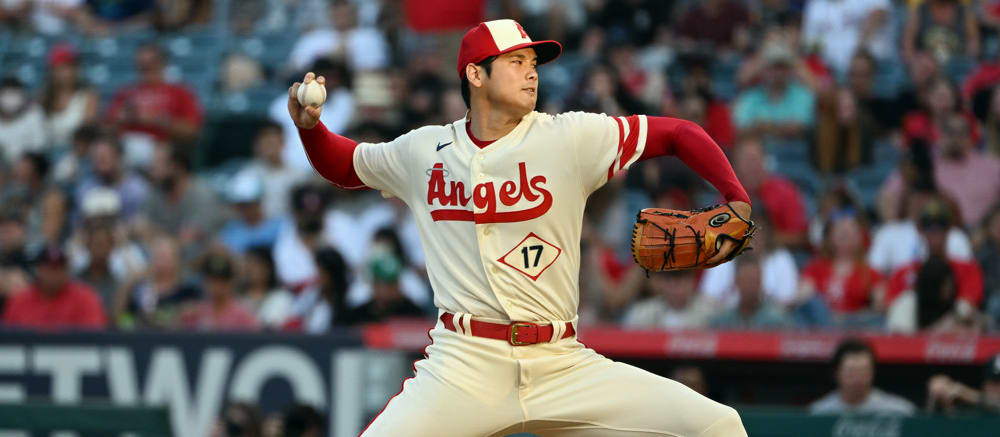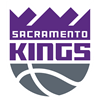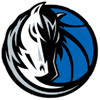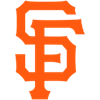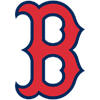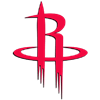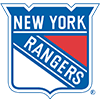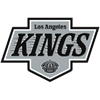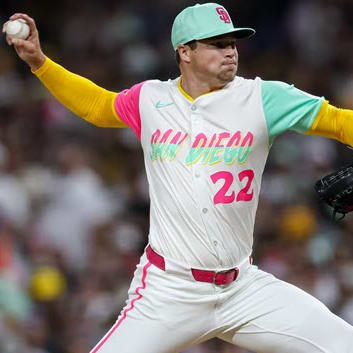WAR, What is it Good For?
Somewhere on the Fantasyland movie cutting room floor is a dinner discussion at Skates On The Bay in Berkeley, California. I sat around a table with the late Lawr Michaels and Ron Shandler, chatting about various baseball-related topics. Unfortunately, we were all deprived of our Oscar moment as none of the footage made it into the film. But hey, we had a free meal and the company was top notch.
One of the topics discussed was who should win the MLB awards that season, along with some Hall of Fame talk. I explained that while I am cognizant of and respect the history of the game, I'm agnostic to who gets voted into the Hall of Fame. The fact Jim Rice is in the Hall and Fred Lynn isn't doesn't shade the memories I have of playfully arguing who was better with my granddad. He was a Rice guy while I loved Lynn.
Similarly, I have never cared about who wins the MVP, Cy Young, etc. My utils of entertainment are derived from watching as many games as possible 182 days a year, plus playoffs. I appreciate that others care, and how the discussions does keep some modicum of attention on baseball during football season, but I'm not moved by who wins or is snubbed.
However, I'd be lying if I said I haven't thought about the Aaron Judge versus Shohei Ohtani MVP debate. Here is my take.
How one perceives value is integral
WAR, What is it Good For?
Somewhere on the Fantasyland movie cutting room floor is a dinner discussion at Skates On The Bay in Berkeley, California. I sat around a table with the late Lawr Michaels and Ron Shandler, chatting about various baseball-related topics. Unfortunately, we were all deprived of our Oscar moment as none of the footage made it into the film. But hey, we had a free meal and the company was top notch.
One of the topics discussed was who should win the MLB awards that season, along with some Hall of Fame talk. I explained that while I am cognizant of and respect the history of the game, I'm agnostic to who gets voted into the Hall of Fame. The fact Jim Rice is in the Hall and Fred Lynn isn't doesn't shade the memories I have of playfully arguing who was better with my granddad. He was a Rice guy while I loved Lynn.
Similarly, I have never cared about who wins the MVP, Cy Young, etc. My utils of entertainment are derived from watching as many games as possible 182 days a year, plus playoffs. I appreciate that others care, and how the discussions does keep some modicum of attention on baseball during football season, but I'm not moved by who wins or is snubbed.
However, I'd be lying if I said I haven't thought about the Aaron Judge versus Shohei Ohtani MVP debate. Here is my take.
How one perceives value is integral to any MVP discussion. If you're reading this, you no doubt know all of the arguments, so there's no need to rehash.
My opinion is when the award was conceived, the intent was the best player in MLB should win the award. Calling it Most Outstanding Player would have been more appropriate, but who wants to argue who should win the National League MOP? Most Valuable Player has a certain flair, so the MVP was born.
Back then, the best player was almost always on a winning team. As the league (and player pool) expanded, some lesser teams had a standout player or two. However, there was a history of the MVP coming from a winning team, so this morphed into an unwritten rule, fueled by the interpretation of "valuable."
Personally, I feel it should be the MOP award. The best player in each league should be recognized. Gauging "best" is an issue. More on that in a bit.
With Andre Dawson winning the NL MVP in 1987 despite playing for a last place Chicago Cubs club, the narrative became, "The MVP should come from a contending team, unless they have a season so far ahead of the others." In 2003, Alex Rodriguez had such a year, capturing the MVP while playing on the last place Texas Rangers.
While I may not care who wins the award, I do care about the reasoning, and I find the "must come from a winning team unless..." argument to be fallacious. At what point does the difference in production outweigh the perceived contribution to a winning team?
The root of the value argument is adding 10 wins to a 55-win team still leaves a terrible 65-win squad. However, adding 10 wins to an 85-win team could be the difference between playing postseason games in October or hitting the golf course.
I don't know, it seems to me adding 10 games is adding 10 games, regardless of where the team is in the standings.
To counter this, many will contend there is more pressure playing for a team with playoff aspirations. Maybe, but shouldn't someone continuing to focus and produce while playing on a team with nothing to play for warrant credit?
As is always the case in these instances, the debate turns to strawman arguments.
To avoid the need to go strawman, many Judge proponents have cited WAR as the reason to award him the MVP. They correctly point out Judge's WAR is greater than Ohtani's combined pitching and hitting WAR.
This should be enough to sway a numbers wonk like yours truly to "All hail!"
Not so fast, Skippy.
Pardon the tangent, but I find WAR to be an imperfect measure. Aside from there being multiple forms of the metric, it's empirically determined, though there is clearly an element of logic. WAR estimates the various hitting, pitching and fielding contributions for each player, converting each to something akin to a common denominator so they can be summed into a single, catch-all number. As much wisdom, logic and common sense goes into the calculation, it's still an estimate. However, many treat it as gospel, especially when its citing supports their agenda.
Based on what's presented so far, it may seem I am in the Ohtani for MVP camp. I'll keep the suspense going a bit longer and first say I embrace the haziness surrounding the MVP discussion. Yes, I believe value is value, regardless of the player's team. However, I comprehend and respect the notion it isn't value unless it contributes to a winning environment. That said, I still find the exception "unless it is so much better" to be disingenuous.
Yes, if given a vote, I would check Ohtani. However, the reasoning is different than what's been mentioned so far. Admittedly, the final determination is more subjective than objective, but I don't believe there is an objective means to address the issue. Shoot, if there was, there wouldn't be any question who wins, assuming there was an agreement on the connotation of value.
Here is my thinking. I asked myself, "Based on 2022 stats, who would you choose as the first pick if drafting a team to be used in a simulation of the 2022 season?" I believe I have the best chance of assembling the simulated champion with Ohtani on my roster. Let's say the conventional strategy is drafting nine batters, five starting pitchers and a closer with the first 15 picks. I'm done after 14 picks. I get to start in on the rest of my roster before everyone else. To me, this is a huge advantage. In addition, having Ohtani's innings in tow helps with roster construction, as I can wait longer on pitching at some point in the draft. Remember, we know the stats, so the uncertainty surrounding pitching is moot.
The objective nature of this approach is measuring the ancillary benefits of Ohtani (roster construction, building the rest of my rotation) with the clear delta in offense, along with the ancillary benefit of Judge's defense versus Ohtani locking up utility. I have not quantified or even estimated it. Instead, I am relying on my more than ample gut. This is, after all, what many voters do.
Box Score Blitz: Wednesday, September 21
- WSH 3, ATL 2: Despite a solid spot start from Bryce Elder, the Braves missed a chance to gain a game on the Mets, who also lost. Joey Meneses continues to crush the ball. Sure, his .378 BABIP is high, but he has a 49% hard-hit rate, meaning that almost half his contact has been over 95 mph. He has to be in the Nationals plans next season, but he's a 30-year-old unicorn. I see him as a fantasy corner infielder. His success is supported, but there isn't a track record to bank on a repeat. Michael Harris has been hitting sixth or seventh lately, after batting ninth for much of the season. His struggles against lefty pitching aside, it will be interesting to see where he hits next season. If Dansby Swanson returns, or another solid shortstop is signed, and Ozzie Albies is healthy, Harris could stay where he is now. A move to the two-hole, even if it's just against right-handers, could mean at least 30 more plate appearances.
- MIL 6, NYM 0: The Brewers kept their slim playoff hopes alive by virtue of a solid performance from their bullpen. Starter Adrian Houser held the Mets scoreless through 4.2 frames before the bullpen finished the shut out. Arbitrary endpoint alert, but after hitting his 31st homer, Willy Adames is .268/.330/.498 since July 1 with 16 HR, 54 RBI and 45 runs. if my narrative holds true, he'll try to swipe three more bags to end the season on 10, a round number.
- CIN 5, BOS 1: Chase Anderson posted his second straight five-inning, one-run effort. Even though he's pitched well as a starter (2.57 ERA and 0.71 WHIP over his last 14 frames), Anderson only fanned 12 in that span with five walks, so he's still a risky streamer.
- CHC 4, MIA 3: Given, it was in a losing effort, but Jesus Luzardo continues to fortify his 2023 draft stock after whiffing 11 in 6.2 innings. The lefty limited the Cubs to one run, but Steven Okert had a rare poor outing while Cubs reliever Keegan Thompson followed a quality start from Marcus Stroman with three spotless stanzas.
- HOU 5, TB 2: Lance McCullers and Corey Kluber both hurled seven frames. McCullers fanned eight to Kluber's pair, but the Rays led 2-1 after seven. The Astros put a three-spot on Brooks Raley in the eighth to secure the win, with Ryan Pressly collecting his 30th save. Kyle Tucker's homer leaves him one shy of 30. He has 22 steals, so he's in range of an impressive 30/25 season. Jose Altuve left the game after being hit on the elbow. The extent of the injury is unknown, but Altuve wasn't in Thursday's lineup.
- PHI 4, TOR 3 (F/10): Given, this is subjective, but the Phillies and Blue Jays played one of the more entertaining games on the Wednesday slate. Behind solid efforts from Kevin Gausman and the returning Zack Wheeler, the game was scoreless through seven frames. After missing a month with a forearm injury, Wheeler was pulled after four stanzas while Gausman fanned eight in six frames. Both teams tallied three in the seventh before the Phillies pushed across the zombie runner in the 10th. Vladimir Guerrero's 30th accounted for Toronto's runs. Some will call 30-plus HR with 90 runs and 90 RBI a disappointment. I see it as a heckuva floor.
- BAL 8, DET 1: Jordan Lyles recorded a "Maddux" with his 94-pitch, complete-game win, surrendering just one run. Orioles rookies Adley Rutschman, Gunnar Henderson and Kyle Stowers went a combined 5-for-14 with three runs and six RBI. Stowers hit his second homer. While Rutschman and Henderson are clearly future stars, Stowers still faces an uphill battle to find playing time next season in Baltimore's talented outfield.
- NYY 14, PIT 2: Ignore the "but it was against the Pirates" narrative. Yankees fans should be elated that Luis Severino hurled five frames, fanning six in five innings in his first MLB outing since July 13. It was a mixed bag for Roansy Contreras as he fanned 10 but also yielded six runs in 4.2 innings. Aaron Judge didn't go deep, but his 2-for-4 effort kept him in the thick of the batting title race in his pursuit of the Triple Crown. I have been down on Gleyber Torres since he took advantage of the happy fun ball in 2019 since his underlying metrics did not support where others were ranking him the past few seasons. After posting a 3-for-4 evening with his 22nd and 23rd homers buoying four runs and five RBI, I need to take a deep dive on Torres, determining if his skills have improved or if he's still the same guy. Perhaps playing only second base (and doing it well) has aided him at the dish.
- TEX 7, LAA 2: Dane Dunning tied his season high with eight strikeouts. His numbers are a tick worse than last season, but every time I watch Dunning pitch, I envision another level. He'll be 28 next season, so there's still time, and Arlington is a good place to pitch. Southpaw Matt Moore looks like a completely different pitcher as a reliever, and as the broadcasters pointed out, he's nails against right-handed hitting. Taylor Ward's 19th homer raised his slash line to .339/.403/.484 in September.
- CLE 8, CHW 2: The Guardians continue to take care of business. After dispatching the Twins by taking 4-of-5 games, Cleveland is putting the White Sox out of their misery as well. Triston McKenzie continues to calm the fears of his durability concerns with an eight-inning gem, allowing just two runs with 13 strikeouts. McKenzie fanned 14 White Sox earlier in the season. For the season, he's punched out 180 in 180.1 innings — not bad for a guy with durability issues.
- KC 5, MIN 2: The first four Royals batters went 7-for-15 including a long ball from MJ Melendez for the second straight game. Nate Eaton says hold my beer as he swiped a bag for the fifth consecutive game. Scott Barlow registered his 22nd save. He's quietly helped fantasy managers who waited on saves, though towards the end of draft season, Barlow incurred some helium.
- SF 6, COL 1: Listen, the smart play is benching pitchers in Coors Field, even if they're good. Sometimes, guys like Logan Webb will post a solid outing, say limiting the Rockies to just one hit with no runs while fanning five in 5.1 innings.
- OAK 2, SEA 1: After limiting the Astros to two runs in six frames in his last start, James Kaprielian bettered that with seven innings of scoreless ball. Oakland has been using a Strat-O-Matic approach lately, going heavy with platoons, including making in-game moves. Given, the fantasy relevancy of their hitters is already limited, but being shorted an at bat or two further dampens the situation.
- SD 1, STL 0: Apparently, Blake Snell didn't get the message he was supposed to feed Albert Pujols cookies. Snellzilla was in fine form with a season-high 13 strikeouts. Miles Mikolas also pitched well, fanning six in six frames, but he yielded the only run of the game. Josh Hader collected his 34th save, but he did not record any punch outs. Hader retired all three Cardinals after starting them off 1-0. He threw 12 pitches, with only half for strikes.
- ARI 6, LAD 1: Coming into the game, Madison Bumgarner's ERA since the break was 7.03, while his WHIP sat at 1.62. On Wednesday, he rolled back the clock, stifling the Dodgers over six frames, yielding just one run on one hit while whiffing five. Dustin May, on whom the Dodgers will be counting on come playoff time, struggled over four stanzas, surrendering five runs on seven hits. Jake McCarthy collected his 19th steal, rendered more impressive considering he's played what amounts to about half a season.


